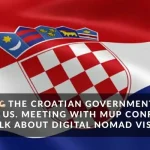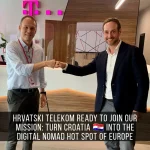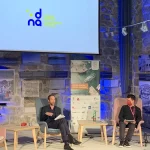1. It is almost 11 months since you wrote the famous open letter on LinkedIn to Prime Minister Andrej Plenkovic. What were your hopes and expectations back then, and how do you feel about the consequences of that letter?
When I wrote the open letter to our PM Plenkovic, I had zero expectations and really high hopes. Prior to my open letter, I had already tested the opinion of the general public about welcoming digital nomads to Croatia – through various LinkedIn posts. And the response was each time overwhelming. So, I expected a lot of support for my open letter, but that we would actually change the laws in Croatia, within such a short time period – was something I could only dream of.
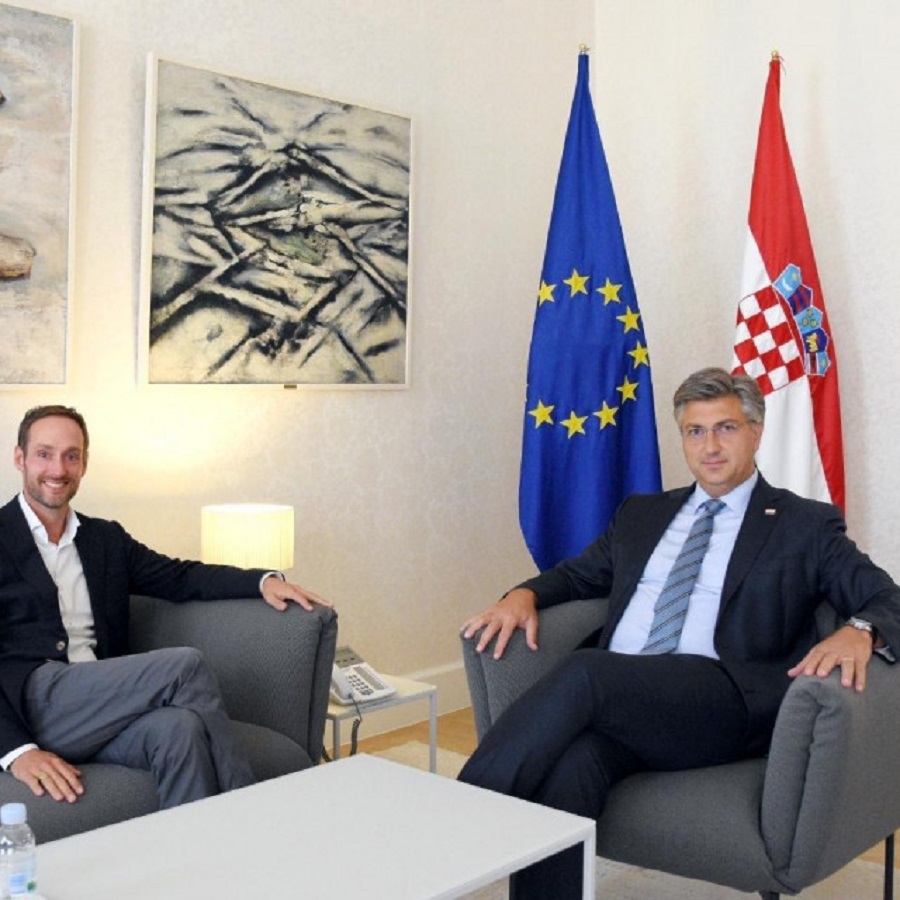
2. It has been an action-packed 11 months. Can you give us three high points from the journey?
The 3 high points were definitely the invitation to meet with the Ministry of Interior, as this was the first confirmation that my request for introducing a digital nomad visa was heard. The second high point was my meeting with the Prime Minister, when he shared his support for this initiative. The third high point was January 1st, 2021 – when the laws became active and when the first digital nomad got approved her staying permit soon after.
3. Along with Tanja Polegubic of Saltwater Nomads and Karmela Tancabel, you are a co-founder of Digital Nomad Association Croatia, with a website going live next week. Tell us a little about DNA Croatia – why did you found it, what is its purpose, and who is it aimed at?
The moment we knew that Croatia was going to be among the first countries in the world to welcome digital nomads, we decided that we wanted to have a more coordinated approach to supporting and uniting digital nomads in Croatia. This is not a job for one man/woman, so we wanted to start an association where other people can get involved in pursuing our mission. There are several stake-holders in all this: 1) The digital nomads. 2) Companies and individuals who wish to serve digital nomads and last but not least – we want to be the bridge between the digital nomad eco-system and the Croatian government.
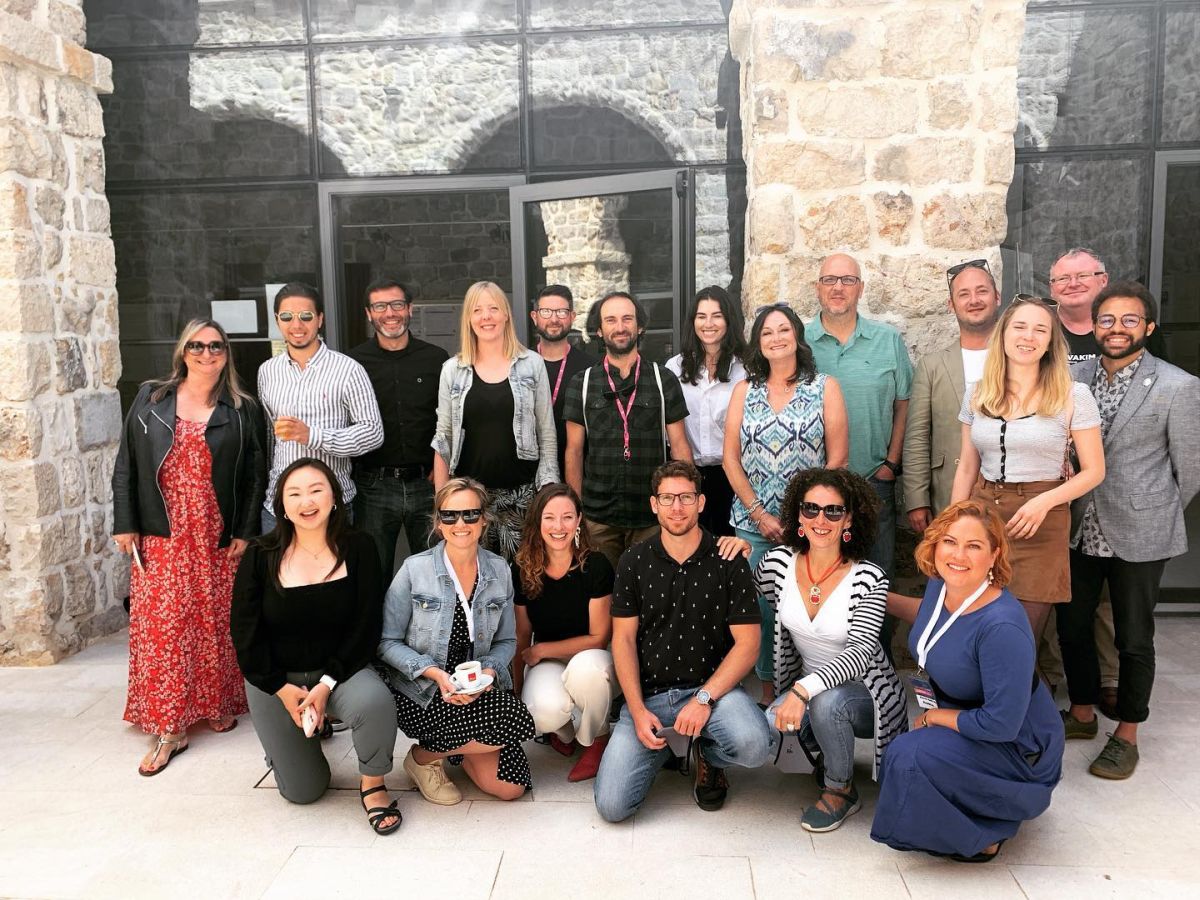
4. You are just back from Dubrovnik, where DNA took part in the final day of Dubrovnik Digital Nomads-in-Residence, which was organised by the City of Dubrovnik, Dubrovnik Tourist Board, Saltwater Nomads and TCN. Tell us a little about the energy down there, and what Dubrovnik learned from its 10 nomadic residents.
Aside from a stunning location, amazing weather and great people, to me it feels that this event is a gathering of lots of positivity and optimism – something we can definitely use in Croatia. At an event like this, we don’t talk about the challenges we are facing in Croatia or about what could have been done better. We talk about opportunities and what needs to be done in order to fully utilize our potential of becoming Europe’s hot spot for digital nomads.
The DNiR program was a co-creation event between digital nomads and local government/tourist board. Together, they came up with a 4-A strategy: Attract, Accommodate, Amaze & Amplify.
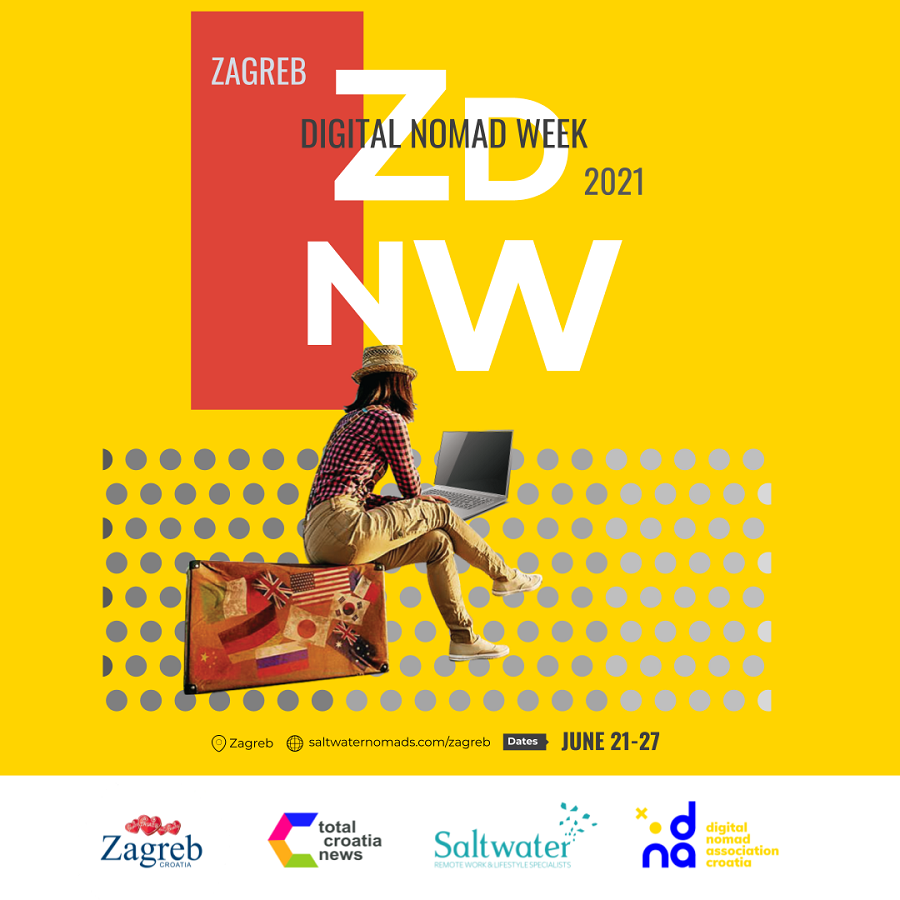
5. The focus now shifts to Zagreb, with DNA, TCN, Saltwater Nomads and the Zagreb Tourist Board hosting Zagreb Digital Nomad Week 2021 & Zagreb Digital Nomad Ambassador Project. Tell us a little about that, and how you will be involved specifically.
The Dubrovnik Digital Nomads-in-Residence program had great energy, and I am delighted that this will be transferred to Zagreb, albeit with a very different concept. The concept is once again being framed and delivered by Saltwater Nomads, with media support from TCN and hosted and financed by the Zagreb Tourist Board. This project will have two distinct parts. From June 21, there will be Zagreb Digital Nomad Week, 7 themes over 7 days, in various locations all over the city. The key topics will be cyber security, online presence, tax & finance, wellbeing, the future of work, remote careers, and explore Zagreb.
The second part of the program will be the Zagreb Digital Nomad Ambassador Project, where six digital nomads will be guests of the city, one month at a time from July 1 to December 31. It will give us a chance to explore Zagreb as a digital nomad destinations through the seasons, with a view to learning and improving the city’s offer.
From DNA Croatia we will be involved in a similar way as in Dubrovnik. For us its important having a chance to interact with digital nomads and all other stake-holders, including the Zagreb Tourist Board, our sponsors/donors – such as Hrvatski Telekom, Raiffeisen, KPMG.
Each event brings new discoveries. We are a young association in a country for which “digital nomad tourism” is a new phenomenon. The most important thing during every single event is to keep learning and introducing new ways on how we as DNA Croatia can support & unite digital nomads in Croatia.
6. A lot of the focus on digital nomads in Croatia has been on the coast. What are your thoughts on the potential of Zagreb for nomads? What does the capital do well, and what can it do better?
I believe there is no place in Croatia where the infrastructure for digital nomads is better than in Zagreb. It is the capital city of Croatia after all. What many people don’t know is that the tourism sector in Zagreb is bigger than that of the rest of this country. Many digital nomads that are in search of great urban lifestyle and communities with like-minded people will be attracted to come to Zagreb. Luckily, knowing that Croatia offers 12-months staying permits to digital nomads, there will be plenty of time to explore different part of Croatia.
7. What are the biggest challenges, in your opinion, in developing the digital nomad opportunity?
Building strong communities is and will be the biggest challenge. Digital nomads will come to Croatia for what this country has to offer. However, they will decide to stay here as long as possible if there is a community they can join. Co-living, co-working spaces, infrastructure – this can all be created by entrepreneurs making investments. Building a community will take lots of efforts…and more time.
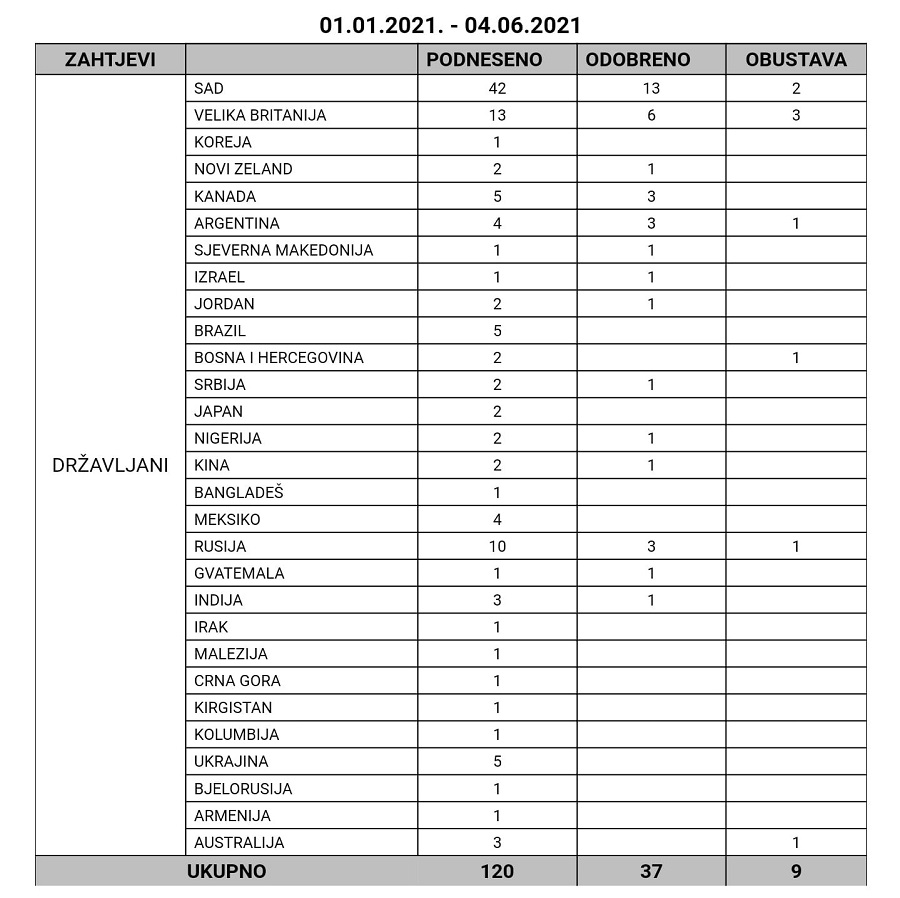
8. Regarding the visa, sorry permit, how many have applied so far, how many have been approved, and what level of applications do you expect once the borders fully open once more?
So far we have received 120 applications for 29 different countries. 37 applicants have been approved so far. The U.S. and U.K. digital nomads are taking a strong lead – making up for nearly half of all applications. Russians are also showing great interest, closely following the U.K.
On one hand I am happy we have the first 100+ applications. On the other hand, I was secretly hoping for more. Countries like Barbados, who did a great PR campaign right after launching their visa – got over 1.000 applications in the first month. So, compared to those results, we cannot be happy with 120 applications.
I personally believe that we as a country could have done more to promote our permit internationally. I am being told by the Ministry of Tourism and Croatian National Tourist Board that the digital nomad permit will get more attention from their side, in promoting it, after the tourism season ends.
Hopefully, around that time, it will also be easier to travel again, so we can see a rapid increase in number of applications in the second half of this year.
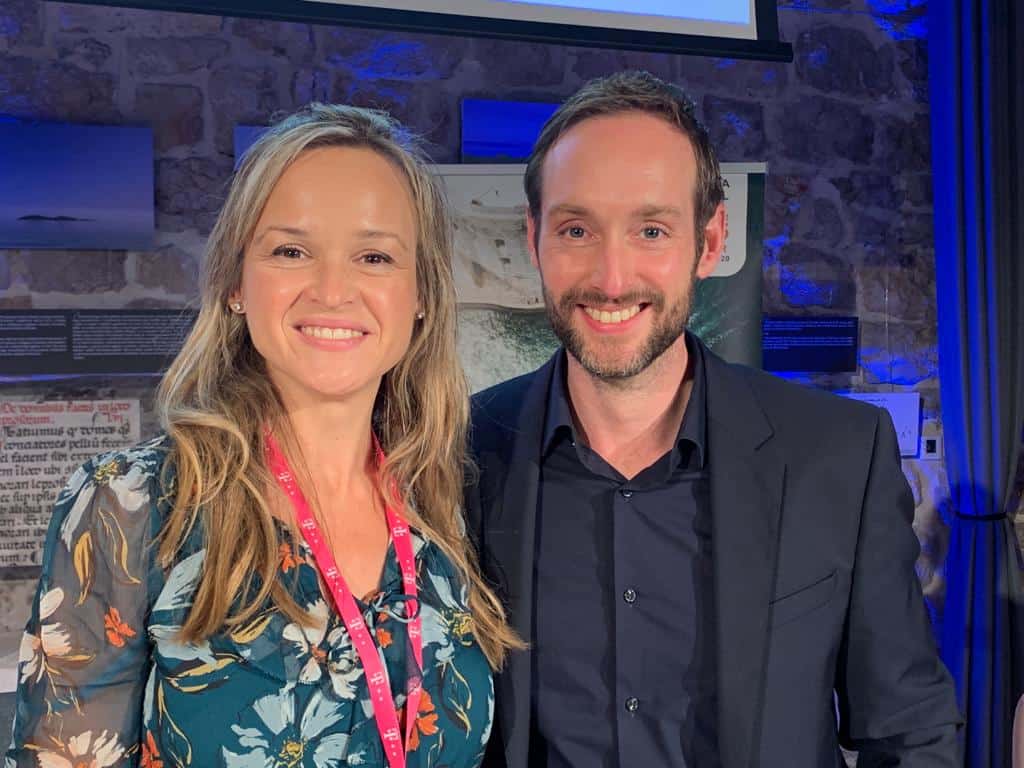
(Jan de Jong at the Dubrovnik for Digital Nomads conference in October 2020, with conference organiser Tanja Polegubic of Saltwater Nomads. Both are co-founders of the Digital Nomad Association Croatia)
9. Is the permit the finished article, or is it still a work in progress? The speed with which the whole processed was like driving a Rimac Nevera in the context of Croatian bureaucracy. Certain issues, such as the need for an apostille and the FBI background check proof, have caused some problems for some applicants. Are such issues open to being addressed?
The part that I am currently looking into are to make some additional legislative changes to the tax law. Currently, digital nomads are exempt from paying income tax in Croatia. We would however, like to see some additional clarity on digital nomads being exempt from paying taxes on other types of income, such as tax on capital gain, dividend tax, etc. Even though, the tax authorities stated that they would not go after such taxes, currently this is not defined by law. Together with KPMG we are looking into these open items, to make sure they are well defined.
Croatia will not waive from getting proof of no criminal record for applicants of the staying permit. Unfortunately, for some digital nomads, this is a time-consuming process to obtain such documentation, from i.e. the FBI. But if U.S. citizens who apply for the permit follow all necessary steps and take the time for their application, than I don’t see major obstacles here. This is not a problem of Croatian bureaucracy but more that of the U.S. bureaucracy.
Just to give you an example, as a Dutch citizen it would take me 30 minutes to get such proof of no criminal record at the city hall in the town where I would be registered. That is how its done in the Netherlands.
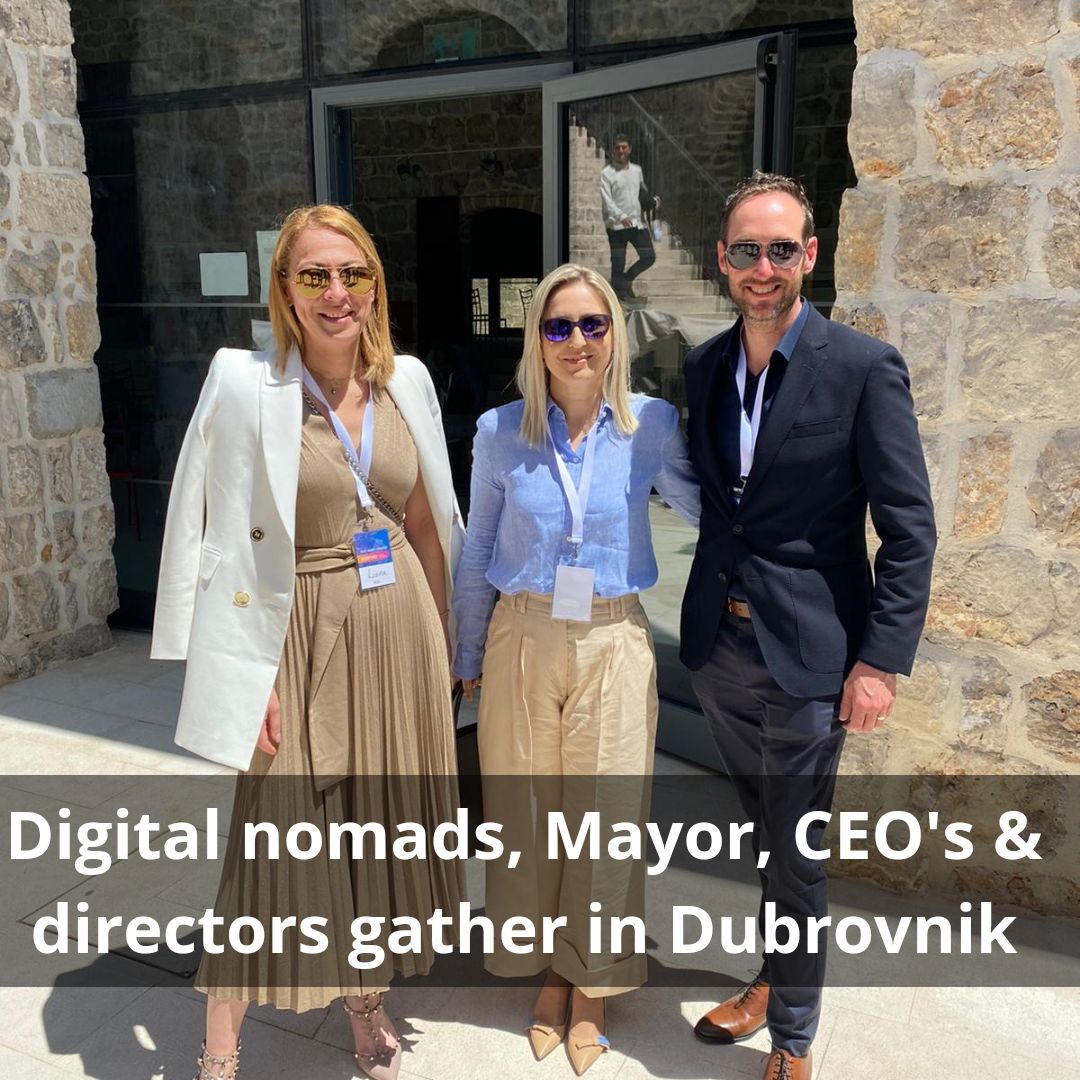
(De Jong with two of DNA’s biggest corporate supporters – RBA Croatia CEO Liana Keseric, and KPDG’s Kristina Grbavac – all three were panelists on the final day of Digital Nomads-in-Residence)
10. The support of private business has been excellent so far. Tell us more.
Yes, its great to see how some amazing Croatian companies have decided to support our efforts. And that in a very challenging year, where the Croatian economy was hurt severely as a result of Covid-19 and several major earthquakes. Hrvatski Telekom, Raiffeisen Bank, KPMG, Links, Younited Agency and several other companies have reached out – wanting to help and support. Hrvatski Telekom has already introduced a special proposition for digital nomads, offering unlimited, fast, mobile internet for just 60,00 kn per week – without contract obligation. It is great to see the largest telecom provider in Croatia demonstrating such leadership.
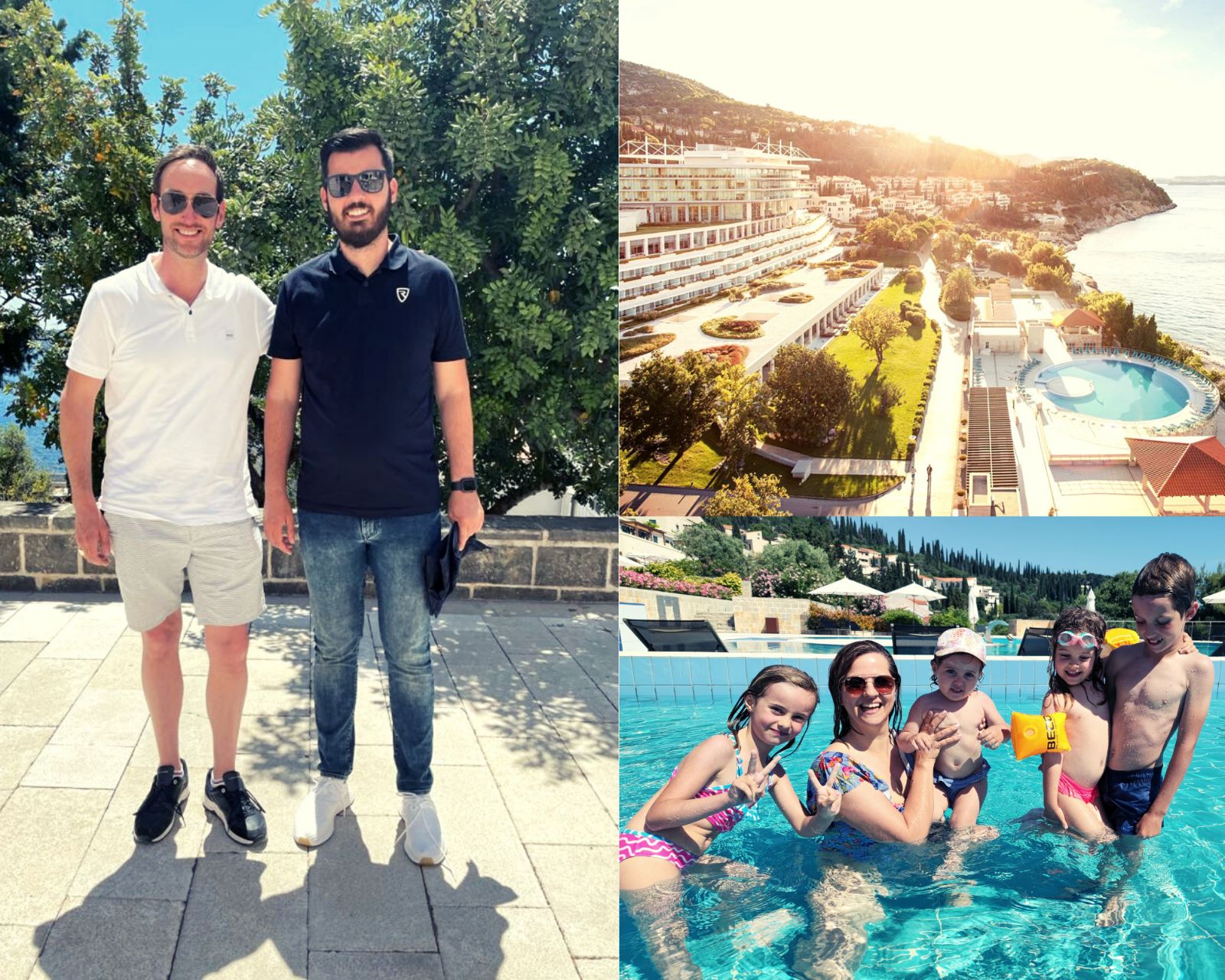
(Living the Croatian dream with and a meeting of the man who makes one very fast car)
11. And finally, what are the next steps for Croatia on its digital nomad journey?
For a change, we have the laws on our side in Croatia. The Croatian government did what it had to do to welcome digital nomads to come to Croatia. Now, we need to focus on building community, infrastructure and to promote Croatia internationally as a digital nomad hot spot in Europe. You know what they say – it takes 10 years to have overnight success. Right now, we are in year 1. I am super excited to see where we can take this in the coming decade. What it requires to turn this into a success is action today!
For more information on Zagreb Digital Nomad Week 2021 and Zagreb Digital Nomad Ambassador Project, visit the Saltwater Nomads website.
For the latest news and features on digital nomads in Croatia, follow the dedicated TCN section.


